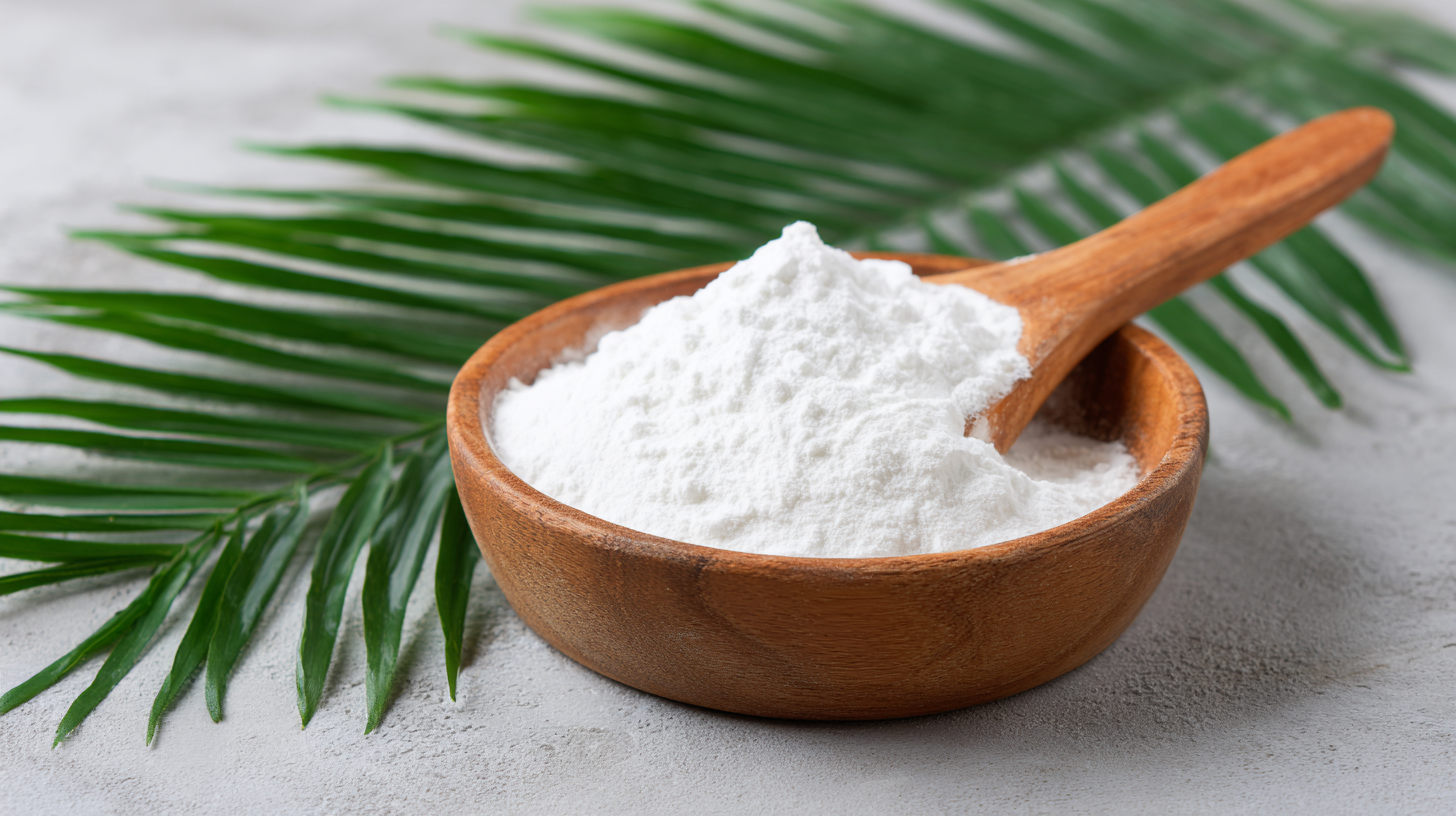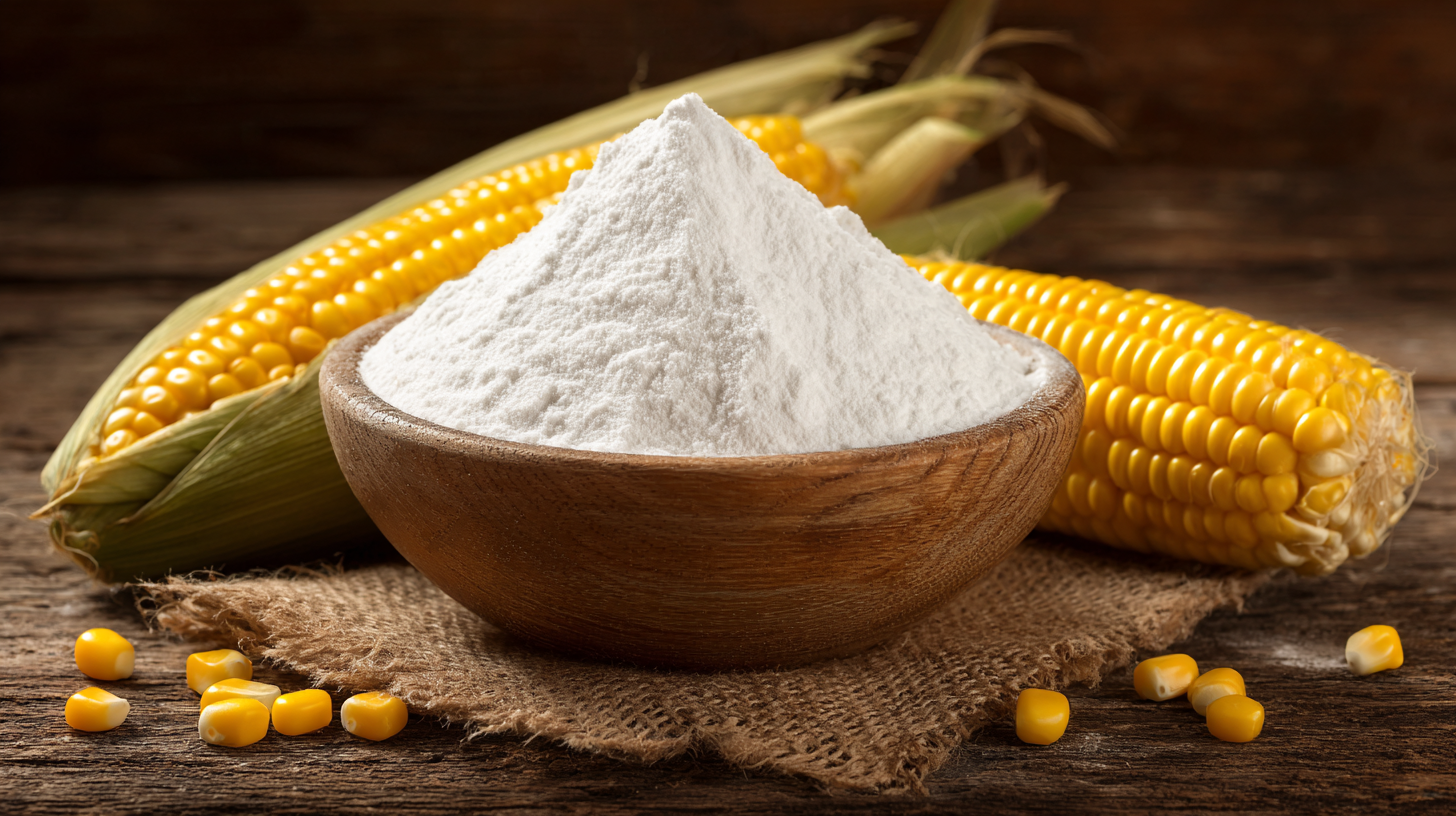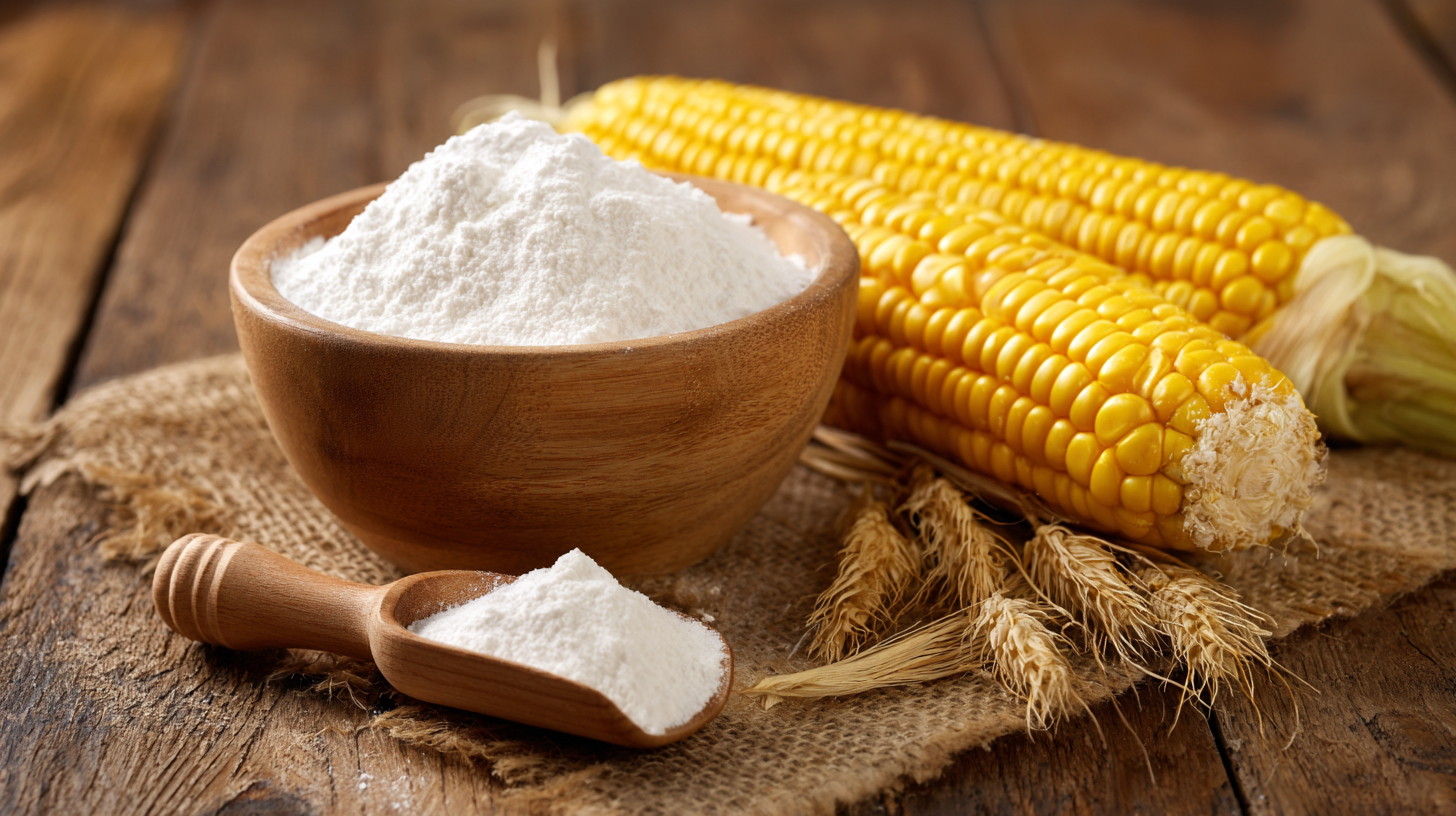
7 Essential Tips for Sourcing the Best Modified Corn Starch Globally
Modified corn starch plays a pivotal role in numerous industries, including food, pharmaceuticals, and cosmetics. According to a recent report by MarketsandMarkets, the global modified starch market is projected to reach USD 17.6 billion by 2024, growing at a CAGR of 3.8% from 2019. As businesses increasingly seek to improve the texture, stability, and shelf life of their products, sourcing high-quality modified corn starch has become essential. This blog outlines seven vital tips for sourcing the best modified corn starch globally, highlighting key considerations such as supplier reliability, regional regulations, and quality standards, which can significantly impact product performance and brand reputation. To navigate this complex marketplace effectively, manufacturers and product developers must leverage accurate sourcing strategies to meet their specific application needs while ensuring compliance and sustainability.

Identifying Key Markets for Modified Corn Starch Sourcing
In the competitive landscape of modified corn starch sourcing, identifying key markets is crucial for maximizing procurement efficiency. With the modified starch market projected to reach USD 16.87 billion by 2030, driven by increased investments and a growing demand for versatile applications, sourcing strategies must adapt accordingly. For businesses looking to navigate this market, it's essential to focus on regions with rising consumption of processed and convenience foods, as this segment continues to fuel demand.
Tip 1: Establish partnerships with local suppliers in high-demand regions to ensure a steady supply. As the industrial starch market experiences growth in the food and beverage sectors, local sourcing can enhance flexibility and responsiveness to market shifts.
Tip 2: Explore emerging markets where modified starch products are gaining traction. Reports indicate significant growth in the modified cassava starch segment, with projections reaching USD 3.37 billion by 2030. Targeting these growing markets can offer substantial opportunities for expanding your sourcing portfolio.
Tip 3: Stay informed on sustainability trends in bioplastics, as they increasingly influence sourcing decisions. The ongoing shift towards sustainable practices creates a demand for modified starches that align with eco-friendly initiatives, presenting a unique avenue for market penetration.
Evaluating Quality Standards in Modified Corn Starch Suppliers
When sourcing modified corn starch globally, evaluating the quality standards of suppliers is paramount. According to the Food and Agriculture Organization (FAO), the global modified starch market is projected to reach USD 18.6 billion by 2026, driven by the increasing demand for convenience foods and clean-label products. Consequently, understanding the quality metrics and certifications held by suppliers becomes essential to ensure compliance with international standards and consumer expectations.
Quality standards can vary widely across suppliers, so it’s crucial to look for certifications such as ISO 9001 for quality management systems and HACCP (Hazard Analysis and Critical Control Points) for food safety. A report by Mordor Intelligence states that suppliers meeting these benchmarks are more likely to provide safe and high-quality products. Furthermore, suppliers should disclose their production processes and ingredient sourcing to verify transparency and sustainability, which are becoming increasingly important in the industry. In assessing potential suppliers, analyzing their adherence to these quality standards will not only mitigate risks but also enhance the reputation of your brand in the competitive food market.
7 Essential Tips for Sourcing the Best Modified Corn Starch Globally - Evaluating Quality Standards in Modified Corn Starch Suppliers
| Supplier Region | Quality Certification | Price per Ton (USD) | Delivery Time (Days) | Customer Rating (out of 5) |
|---|---|---|---|---|
| North America | ISO 9001 | $950 | 15 | 4.7 |
| Europe | HACCP | $1020 | 20 | 4.6 |
| Asia | GMP | $870 | 30 | 4.8 |
| South America | ISO 22000 | $900 | 25 | 4.5 |
| Africa | FSSC 22000 | $800 | 35 | 4.3 |
Building Strong Supplier Relationships for Long-Term Success
Building strong supplier relationships is critical for companies sourcing modified corn starch globally. Effective collaboration with suppliers can enhance product quality, reduce costs, and improve supply chain resilience. According to a recent report by Mordor Intelligence, the global modified corn starch market is projected to reach USD 12.08 billion by 2025, growing at a CAGR of 5.5%. This underscores the significance of forming strategic partnerships in a rapidly evolving industry.

To cultivate these relationships, transparency and communication are paramount. Companies should engage in regular dialogue with their suppliers to ensure alignment on quality standards and delivery schedules. A 2022 study by Deloitte highlighted that organizations investing in supplier relationship management significantly outperformed their peers in operational performance and profitability. By fostering trust and collaboration, businesses in the modified corn starch sector can navigate supply chain challenges and capitalize on emerging market opportunities effectively.
Utilizing Technology and Innovation in Sourcing Processes
In today's rapidly evolving marketplace, leveraging technology and innovation is essential for sourcing the best modified corn starch globally. Advanced digital platforms are vital in enhancing access to reliable suppliers and improving sourcing processes. For instance, employing AI-powered procurement solutions can streamline sourcing, optimize spending, and mitigate risks associated with supplier selection. This technology not only enhances efficiency but also ensures transparency throughout the entire sourcing lifecycle.
Blockchain technology is another transformative tool that addresses food safety and fraud, making it crucial for sourcing modified corn starch. By utilizing blockchain, companies can authenticate the quality and origin of their ingredients, thus increasing consumer trust. It reinforces traceability and enables stakeholders to track the entire supply chain, ensuring that only the best products reach the market.
Additionally, incorporating logistics technologies is imperative for effective supply chain management. Innovations such as deep learning and machine learning can significantly improve inventory control and optimize production processes. These advancements allow for more informed decision-making, leading to a sustainable sourcing strategy that aligns with contemporary environmental goals. Embracing these technologies will not only enhance sourcing efficiency but also support a commitment to sustainable practices in the modified corn starch supply chain.
Understanding Pricing Strategies and Cost Analysis in Procurement
In today’s global procurement landscape, understanding pricing strategies is crucial for sourcing modified corn starch effectively. As markets become increasingly interconnected, procurement departments are shifting focus from mere cost optimization to enhancing resilience. This adjustment is necessary to navigate the complexities of a multipolar world where supply chain disruptions are common. Organizations must adapt their pricing strategies to reflect market fluctuations and develop comprehensive cost analysis techniques that can better inform purchasing decisions.

Moreover, recent developments highlight the importance of local sourcing policies and their impact on pricing evaluations. For instance, proposed government initiatives suggest offering a 20% price preference for domestic products over foreign alternatives. Such strategies will not only affect the pricing dynamics of modified corn starch but also encourage suppliers to innovate and enhance their offerings. By leveraging artificial intelligence and machine learning, procurement teams can enhance their analysis of market trends, making data-driven decisions that contribute to cost efficiency while maintaining flexibility in a constantly evolving market.
